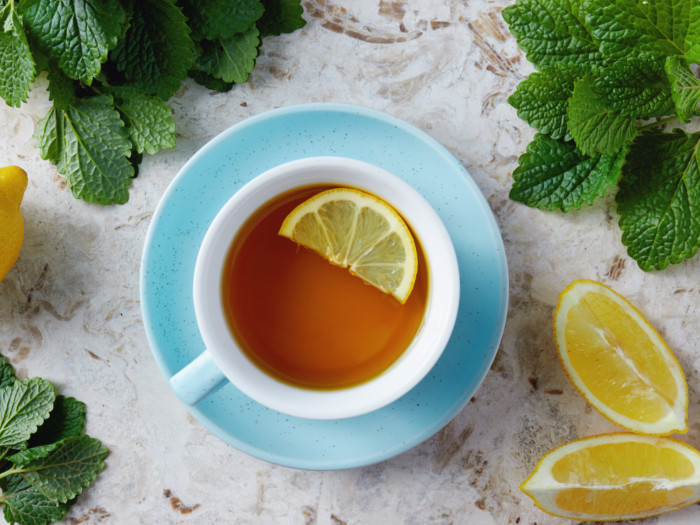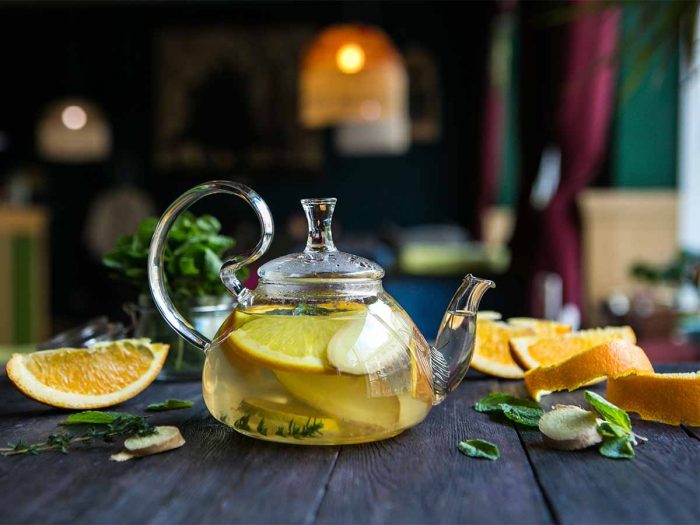Drinking a rejuvenating cup of citron tea can be a wonderful way to boost your health and enjoy an unusual variety of tea.
What is Citron Tea?
Citron tea is a type of tea that is not actually brewed from tea leaves. Also known as yuja-cha, yuja tea, yuzu tea, and Korean citron tea, this flavorful beverage is prepared using thin slices of the citron fruit, preparing it with sugar and honey to form a fruit preserve. Citron is a large citrus fruit, closely related to the pomelo and mandarin, and has been cultivated in some way since ancient times. Most popularly prepared and consumed in Korea, it has become a cultural export and has become more readily available in the United States and other regions where herbal teas and natural healing is on the rise. [1]
Nutrition
This tea contains a moderate amount of vitamin C and various antioxidants, as well as essential oils with antibacterial properties. There are also small amounts of iron and calcium, along with dietary fiber and low levels of potassium. There are only 65 calories in a cup of Korean citron yuzu tea.

A cup of tea with a lemon slice in it Photo Credit: Shutterstock
Citron (or Yuzu) Tea Benefits
There are many impressive benefits for those who drink this tea. Since ancient times, it has been used to heal respiratory issues, such as coughs and sore throats, and was commonly brewed as a remedy for seasickness. The possible vitamin C content is able to stimulate the immune system of the body, helping to prevent infections and other diseases, while also acting as a potential antioxidant to reduce oxidative stress in the body. Potential anti-inflammatory properties in this tea also make it a trusted remedy for fever. The possible stimulant nature of citron tea and its essential oils can help to boost circulation and improve discoloration of the body and skin. Perhaps most notable, this Korean tea is trusted as a digestive aid and stimulant. A glass or two of this flavorful tea will help regulate your bowel movements and reduce symptoms of constipation, diarrhea, bloating, and excess flatulence. [2]
How to Make Citron Tea?
Many people prefer to make their own Korean Yuja Cha tea since it is relatively easy to make. Due to the lack of caffeine in this tea, there is no limit recommended by experts, and many people in Korea drink this tea throughout the day. [3]

Korean Yuja Cha (Yuzu Citron) Tea Recipe
Ingredients
- 1 cup citrus fruit or yuzu sliced
- 3/4 cup honey
- 1 cup water filtered
Instructions
- Using a sharp knife, cut the citrus fruit into thin slices or wedges. Be sure to remove the seeds.
- Add 3/4 cup of honey to very warm water and stir to make a syrup.
- Add the fruit slices to this mixture.
- Pour the honey and fruit into a jar and seal. This is called yuja-chung.
- To prepare a cup of tea, add 1 teaspoon of yuja chung to a cup of hot water and stir. You can eat the fruit rind and slices.
- Store excess yuja chung in the refrigerator in an airtight jar until you want to make your next cup of honey citron tea!

Notes
Enjoy this warming beverage in the winter months!
Connect With Us
If you have tried this recipe, we would love your feedback in the comments section below. And while we can’t taste it, we would love to see how it turned out! You can connect with us on Facebook or Instagram and tag your picture with #organicfactsrecipes. [4] [5]
Do you wish to share your winning recipes with us? Please click here and fill in the details to get started.
